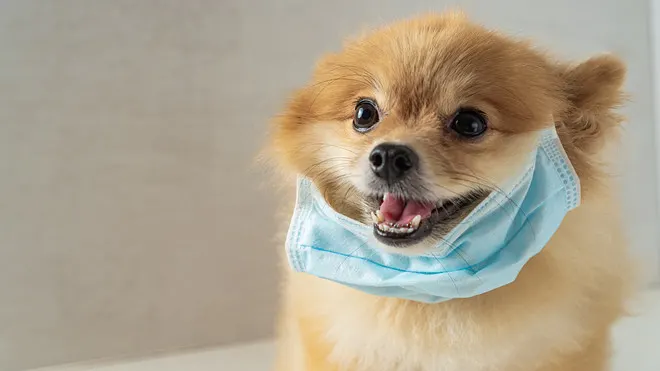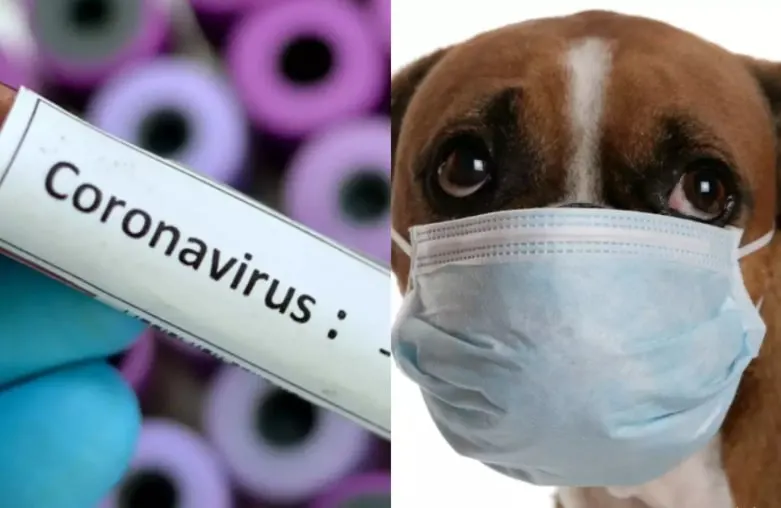Since the coronavirus pandemic hit last year everyone is trying to figure out ways to protect themselves and their family. Wearing masks, washing their hands all the time, practicing social distancing, and so on. And we’re sure you do too. However, did you ever wonder can dogs get coronavirus? And if yes, how can you protect your dog?
Can dogs get Coronavirus?
According to the U.S. Centers for Disease Control (CDC), there actually is a small number of pets worldwide, including cats and dogs, that have been reported to be infected with the coronavirus! These animals mostly got infected after close contact with coronavirus-positive people!
However, why and how that happened, we have no idea! The truth is, this novel virus is still very unknown, and every day we keep learning something new about it.
What we do know is that generally speaking, coronaviruses are a very, very large family of viruses. There are some coronaviruses that cause cold-like illnesses in people. Then there are others that cause illness in certain types of animals, such as cattle, camels, and bats. And then, we have a third version, the canine and feline coronaviruses that only infect animals and do not infect humans.
Can people transmit coronavirus to animals?
Now that we know that dogs can actually get the coronavirus, we need to answer the question if people can transmit coronavirus to animals.
The answer is yes, however it is very, very rare! There have been a number of cases where dog or cat owners who had the coronavirus did in fact infect their pets.
This is why you should, if you tested positive, isolate yourself not only from your family bur your pets as well!
Besides this, because there is a chance you’ve already infected your pet, you shouldn’t let your dog or cat socialize with anyone or any animals outside of that household.

Animals get sick from coronavirus just like humans do?
Unfortunately, there isn’t a clear answer to this question. It all depends on the species and varies from animal to animal.
Experts claim that cats are more likely to become symptomatic, when compared to dogs.
Can I get coronavirus from my dog or other animals?
If animals can get the coronavirus, should I now be afraid of my dog or cat or any other animal infecting me? This is a great question (and a reasonable one.) We’re constantly trying to protect ourselves, staying away from people, wearing masks etc only to get coronavirus from our dog?
You guessed it, there is no definitive answer. However, according to the CDC, and based on the limited information available to date, the risk of animals spreading SARS-CoV-2 to people is considered to be low.
So, there is no need for you to worry.
Should my dog wear a mask?
This question seems kind of silly. I mean why would dogs wear masks? However if you think about it it does make sense. If other humans can infect your dog, maybe this could be a good way to protect your precious pooch, right?
No!
Do not put a mask on your dog! First of all, we don’t know if it will really protect them. And secondly, it can cause serious breathing difficulties for your dog!
Conclusion
As you can see it is actually possible for dogs and cats to contract the novel coronavirus. You can theoretically infect your dog (or cat) if you’re COVID-19 positive. However, it isn’t very likely that your dog will infect you.
Of course in this article, we could cover only so much information. However, if you would like to know whether or not you can actually take walks with your dog in this situation. Or if you need advice on how to protect your dog from the coronavirus please click HERE.

